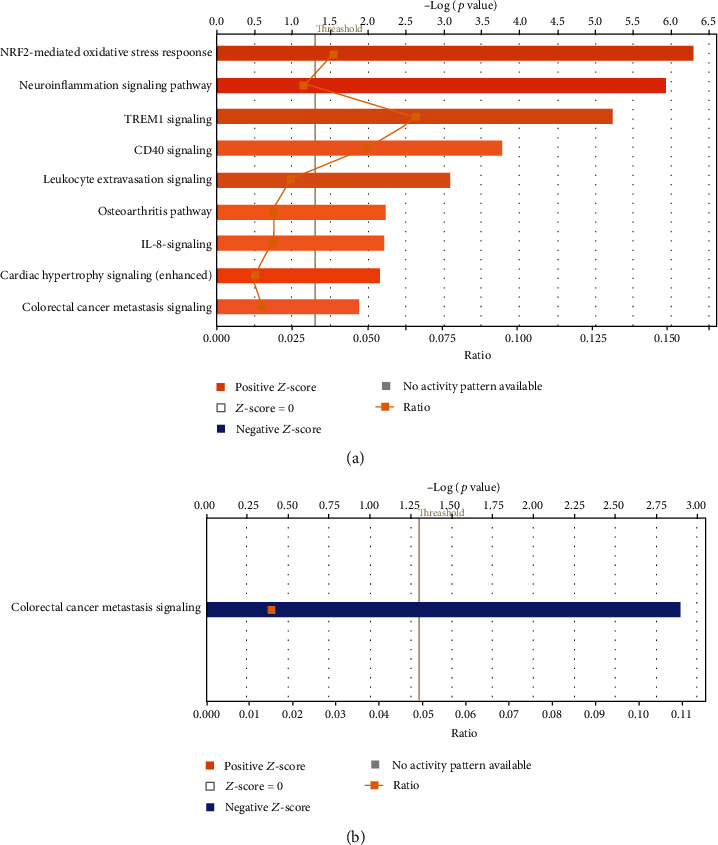Figure 1.

(a) Low-intensity ultrasound (LIUS) upregulated 77 out of 1376 (5.6%) innatomic genes and downregulated 39 out of 1376 (2.8%) innatomic genes (IIGs) in human lymphoma U937 cells (GSE10212), suggesting that (1) LIUS increases innatomic gene expressions more than it decreases them in cancer cells in human lymphoma cells, and (2) upregulation of innatomic genes in lymphoma cells serves as a novel immune mechanism underlying antitumor effects of LIUS (see supplemental Table 1 for the detailed gene list. Of note, due to the big data we generated, we have to summarize and present the key findings in this type unconventional format as we previous reported; PMID: 29434588). LIUS upregulated 77 genes that were significantly involved in nine signaling pathways in human lymphoma cells, which included NRF2-mediated oxidative stress response, neuroinflammation signaling, TREM1 signaling, CD40 signaling, leukocyte extravasation signaling, osteoarthritis pathway, IL-8 signaling, cardiac hypertrophy signaling, and cancer metastasis signaling (PMID: 31315034). Of note, eight out of nine pathways were proinflammatory pathways except NRF2 (anti-inflammatory, PMID: 27825853). (b) LIUS downregulated 39 genes that were significantly involved in only one pathway (cancer metastasis signaling) in human lymphoma cells, suggesting that LIUS inhibits inflammation-driven cancer metastasis (PMID: 31315034).
